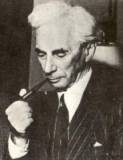📗 Libro en inglés THE IMPACT OF SCIENCE ON SOCIETY
ROUTLEDGE- 9781138641150
Sinopsis de THE IMPACT OF SCIENCE ON SOCIETY
Many of the revolutionary effects of science and technology are obvious enough Bertrand Russell saw in the 1950s that there are also many negative aspects of scientific innovation Insightful and controversial in equal measure Russell argues that science offers the world greater well being than it has ever known on the condition that prosperity is dispersed power is diffused by means of a single world government birth rates do not become too high and war is abolished Russell acknowledges that is a tall order but remains essentially optimistic He imagines mankind in a race between human skill as to means and human folly as to ends but believes human society will ultimately choose the path of reason This Routledge Classics edition includes a new Preface by Tim Sluckin
Ficha técnica
Editorial: Routledge
ISBN: 9781138641150
Idioma: Inglés
Número de páginas: 104
Encuadernación: Tapa blanda
Fecha de lanzamiento: 11/04/2016
Año de edición: 2016
Especificaciones del producto
Escrito por Bertrand Russell

Trelleck, (1872-1970). Bertrand Russell se formó integramente en Cambridge, donde más tarde impartió clases. También trabajó como profesor en las universidades de Pekin y de Estados Unidos. En un primer momento, su filosofía partió de las Matemáticas. Entre 1910 y 1913 escribió 'Principia mathematica', su obra más importante. Russell redujo las matemáticas a una rama de la lógica que denominó logiscalismo. En el plano político, se distinguió por sus tendencias pacifistas, que en más de una ocasión le costaron la cárcel, y sus ideas contrarias a la religión. En 1945 publicó 'Historia de la filosofía occidental' y en 1950 recibió en Premio Nobel de Literatura.
Descubre más sobre Bertrand Russell Recibe novedades de Bertrand Russell directamente en tu email
Opiniones sobre THE IMPACT OF SCIENCE ON SOCIETY
¡Sólo por opinar entras en el sorteo mensual de tres tarjetas regalo valoradas en 20€*!






























